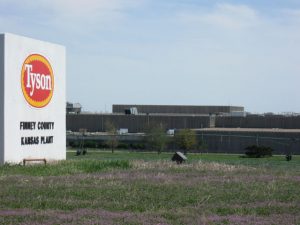
Tyson beef processing plant (DTN.com)
The federal government must provide commodity market oversight and flexibility for livestock haulers, U.S. Sen. Deb Fischer (R-NE) said earlier this week.
Spurred by a recent fire at a home-state beef processing plant, Sen. Fischer urged the heads of the Commodity Futures Trading Commission (CFTC) and the U.S. Department of Transportation’s Federal Motor Carrier Safety Administration (FMCSA) to ensure fair practices by market participants as truckers haul cattle to other locations while the plant is rebuilt.
The lawmaker urged that cattle processing must continue and other plants must absorb the lost processing capacity.
“This plant processed 6,000 head of cattle per day, which is roughly six percent of total U.S. processing capacity,” Sen. Fischer wrote in two separate Aug. 20 letters. “The market reaction to the plant’s closure was felt throughout the entire cattle and beef marketing chain.”
The senator also noted that as a result of the fire, “there will be a 30,000 head per week shortfall in cattle processing capacity.”
In her letter to CFTC Chairman Heath Tarbert, Sen. Fischer asked that the commission “remain vigilant in their oversight of this market to ensure that market participants do not use uncertainty to price gouge, manipulate or take advantage of the burdensome obstacles our producers are currently facing.”
Likewise, in her letter to FMCSA Administrator Raymond Martinez, the lawmaker urged the agency to work with the National Cattlemen’s Beef Association to suspend hours of service for drivers hauling live cattle until the Holcomb, Kan., plant is replaced and “to find a solution to the transportation and logistical issues that have ensued as a result of this event” on Aug. 9.
“With already high margins and heavy supplies, the Tyson fire could not have come at a worse time for cattlemen and the beef industry,” Sen. Fischer wrote to Tarbert. “This is in addition to an already difficult year that has brought extreme weather events and looming trade uncertainty.”



